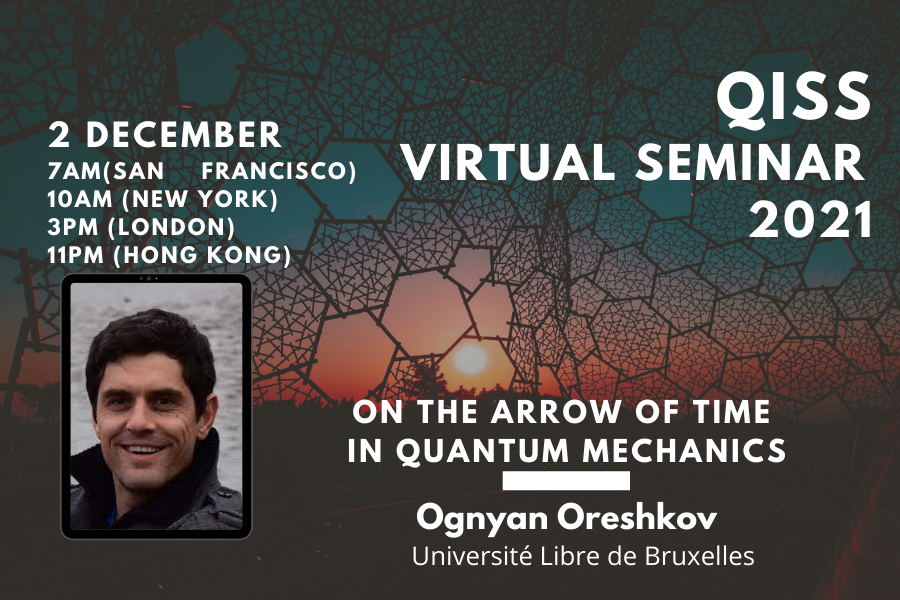HOME / WHAT WE DO / VIRTUAL SEMINARS
Ognyan Oreshkov
Université Libre de Bruxelles
On the arrow of time in quantum mechanics

Abstract: According to quantum mechanics, it is fundamentally impossible to predict with certainty the outcome of a future measurement on a system prepared in a pure state, unless the state is an eigenstate of the observable to be measured. The best prediction is probabilistic, given by the Born rule. This absolute limitation on our ability to predict certain future events constitutes a radical difference from classical mechanics. In the reverse time direction, however, the analogous limitation does not hold: it is in practice possible to know with certainty the outcome of any type of measurement on any type of state, since all such events can have records at present. What is the origin of this time-reversal asymmetry, and how should we think about quantum theory if we believe that a microscopic theory should be time-symmetric?
It has been suggested that quantum theory in its usual predictive form is already time symmetric, if suitably applied back in time, while the observed asymmetry in the information we have about the past and the future can be traced to the thermodynamic irreversibility of macroscopic phenomena. In this talk, adopting a specific operational way of thinking about quantum theory, I will argue that the above asymmetry can be understood as a consequence of a special form of a joint past-future boundary condition at the level of quantum theory itself, without invoking considerations of macroscopic coarse-graining. Improving on an argument originally suggested in [O. Oreshkov and N. J. Cerf, Nature Phys. 11, 853-858 (2015)], I will explain how such a boundary condition implies the inability of a local observer in spacetime to predict future events better than the Born rule, in contrast to past events. I will argue that this can accounts for our perceived ability to influence the future and not the past, as well as to remember the past but not the future, and will speculate on the link between this arrow of time and the thermodynamic arrow. I will argue that a meaningful time-symmetric formulation of quantum theory requires rules that work for all physically admissible situations, hence the Born should be regarded as a special case of a more general rule. Adopting this generalization allows us to reformulate quantum theory in a way that makes sense without predefined time, which may be important for quantum gravity.